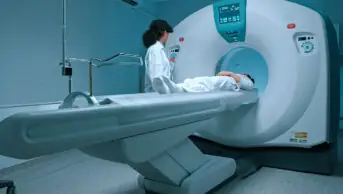
Shutterstock.com
The National Institute for Health and Care Excellence (NICE) has lifted restrictions on access to teclistamab for the treatment of multiple myeloma, a type of blood cancer, in final draft guidance published on 10 October 2024.
Teclistamab is a bispecific monoclonal antibody, which works by bringing together immune cells (T cells) and myeloma cells, allowing the T cells to recognise and destroy the tumour cells.
NICE previously approved the treatment for use on the NHS in July 2024 for patients who had not received the other fourth-line treatments ‘IsaPD’ — a combination of isatuximab, pomalidomide and dexamethasone — or pomalidomide plus dexamethasone.
However, following a consultation, the updated guidance recommends the drug for anyone with relapsed or refractory multiple myeloma who has received three or more lines of treatment and whose myeloma has progressed.
Shelagh McKinlay, director of research and advocacy at blood cancer charity Myeloma UK, commented: “This is fantastic news and a hard-earned victory for all involved. Teclistamab is the first of a new class of drugs to be approved on the NHS in England and Wales and could be a lifeline for people who are close to running out of treatment options.
“It has shown excellent results in clinical trials and allowed some people who have never responded well to treatment to experience their very first complete remission.
“The initial decision to impose restrictions and keep the drug out of the reach of those who needed it most was deeply unfair. Over the last few weeks, we have worked tirelessly to get everyone back around the table, come up with a solution and give people with myeloma a fighting chance to spend more time with their loved ones.”
Another bispecific monoclonal antibody, elranatamab, was also approved under the same conditions by NICE in the summer but remains under the previous restrictions.
“As soon as we heard about the restriction on access to elranatamab we challenged the decision,” McKinlay added.
“Since then we have submitted evidence from patients and worked with clinicians to get the restriction lifted. We are still awaiting the decision and continue to do everything in our power to get these restrictions removed.”
Catherine Loughran, consultant pharmacist in haematology at University Hospitals of Leicester NHS Trust, said: “This is fantastic news for the myeloma community, and it is hoped that restrictions on the use of elranatamab will also be lifted, giving myeloma patients more options.
“Multiple myeloma remains incurable, with the time to next treatment reducing with each line of therapy. Patients who relapse after three prior lines of therapy have an average life expectancy of 9.7 months, whereas patients treated with teclistamab and elranatamab have an overall median survival of nearly 2 years. This is a significant step forward in the treatment of myeloma..
“Bispecific antibodies are associated with toxicities not seen with standard cancer treatments, mainly cytokine release syndrome and immune effector cell-associated neurotoxicity. These toxicities require close monitoring and may involve hospital admission.
“Importantly, teclistamab and elranatamab are also associated with significant rates of infection, with many patients requiring immunoglobulin therapy. Pharmacists have an important role in supporting the management of patients receiving these medicines.”
Multiple myeloma is the second most common form of blood cancer in Europe and the most common plasma cell disorder.


